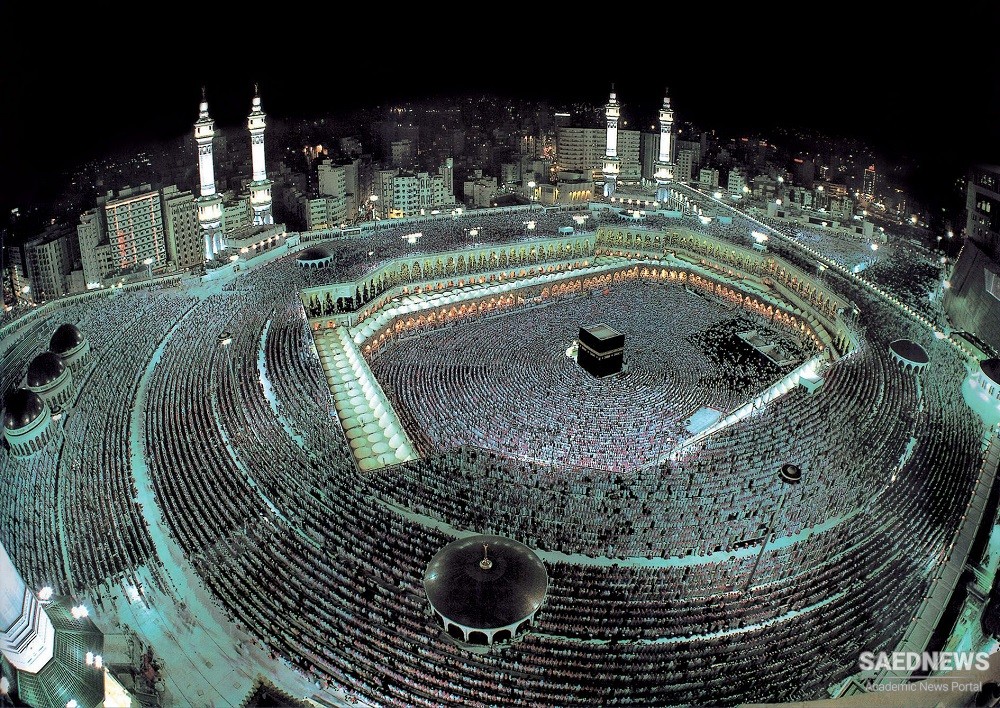Ka‘bah in Arabic is derived from the root meaning “cube.” In the Qur’an, the Ka‘bah is God’s house of worship. God twice refers to it as “My House” (2:125, 22:26), and Abraham calls it “Your sacred house” when talking to God (14:37). It is referred to eighteen times in the Qur’an in one form or another, while the specifi c term Ka‘bah itself occurs only twice, in the surah The Table (5:95, 5:97). The location of the Ka‘bah is also given, according to many interpretations, as at Bakkah (3:96), in a valley with no cultivation (14:37). The sacred shrine was instituted to create a sanctuary for worshipers and to establish prayers (salat). The Ka‘bah is the ritual and symbolic center of Muslim worship; it is the direction in which Muslims the world over face during prayer. Mosque architecture usually includes a prayer niche or qiblah that allows worshipers to turn to Mecca. The sacred black stone now located in the southeast corner of the Ka‘bah is said to be part of what came down from heaven to provide light for Adam and Eve. However, after the great fl ood, the position of the Ka‘bah was hidden. The angel Gabriel revealed its site to Abraham and Ishmael and they were instructed to rebuild it on its original site. The maqam Ibrahim, the “place of Abraham” (2:125), is still today indicated there, together with the footprints of Abraham. The area for one mile around the Ka‘bah was sacred and no warfare was to take place there nor was any blood to be spilled. Abraham and Ishmael were also instructed in the ceremonies of the pilgrimage (hajj), which now included not only circumambulation of the Ka‘bah (2:125) but also the ritual of the sa’, the movement back and forth seven times between al-Marwa and al-Safa, in reenactment of Hajar’s movement as she searched for water in the valley of Bakkah. When pilgrims today drink from the spring of Zamzam, which is located in the sacred precincts, they are celebrating the miraculous appearance of the angel Gabriel who brought forth water for the thirsty Hajar and her son (Source: Islam, Key Concepts, Oliver Leamann).


 Five Pillars of Islamic Faith
Five Pillars of Islamic Faith














































